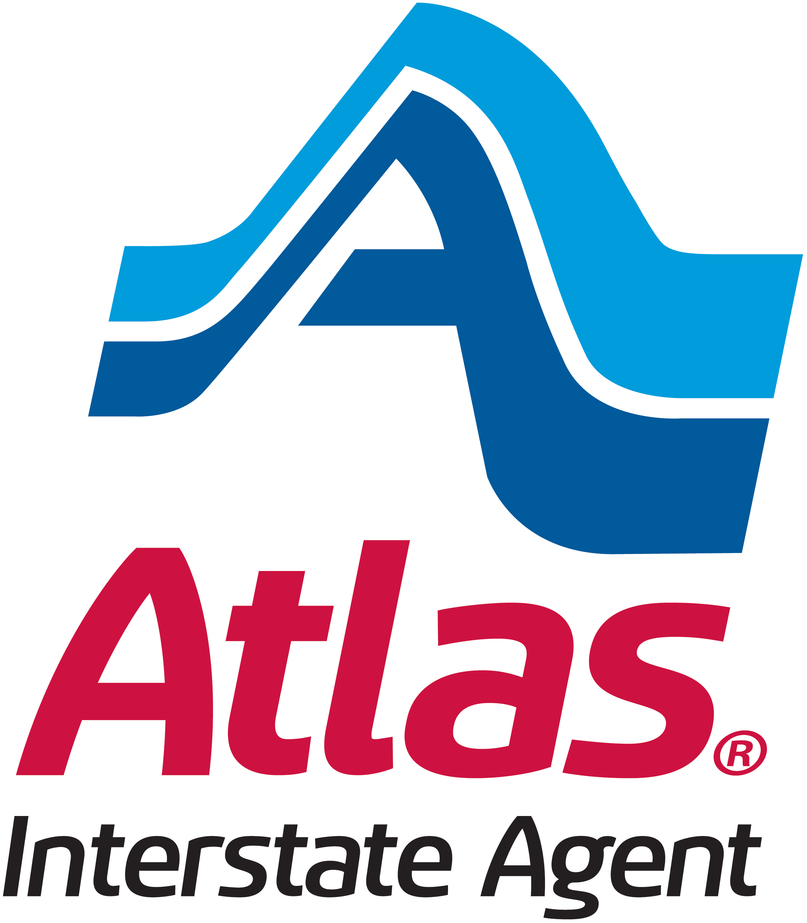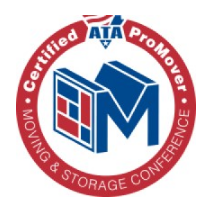What Do I Need to Move Out? 5 Steps to Moving Out

What Do I Need to Move Out? 5 Steps to Moving Out
Leaping to live independently ranks among life’s most transformative experiences. The path to a successful move blends careful financial planning, strategic decision-making, and thorough preparation.
Recent studies show that 33% of young adults feel overwhelmed by the complexity of their first move, yet proper guidance transforms this challenge into an achievable goal.
Financial readiness forms the foundation of a successful transition to independent living. Beyond covering initial expenses like security deposits and moving costs, establishing a robust emergency fund provides crucial stability during your adjustment period.
The right living space – whether an apartment in an energetic neighborhood or a quiet suburban home – shapes your daily experience and financial obligations.
Professional moving services can significantly reduce the stress of relocation, particularly for long-distance moves. At Nelson Westerberg, our century of experience has shown that thorough preparation makes the difference between a challenging move and a smooth transition.
From securing essential documents to setting up utilities, each step requires careful attention to create your ideal living space.
Your journey to independence deserves a detailed strategy that addresses both practical and emotional aspects of moving. Understanding the full scope of moving expenses, gathering necessary documentation, and creating a detailed timeline helps ensure a successful transition.
Our expertise in managing countless moves has enabled us to provide strategic guidance through each crucial decision point, from choosing the perfect location to establishing your new home.
Financial Preparation Before Moving Out
Financial readiness forms the cornerstone of a successful relocation. A well-planned financial strategy helps you maintain stability in your new home while avoiding common monetary challenges that often surprise first-time movers.
Essential Savings Goals
Before planning your move, establish three critical financial components to ensure a smooth transition:
First Month’s Rent and Security Deposit
Most rental properties require an upfront payment of 2-3 times your monthly rent. This typically includes:
- First month’s rent payment
- Security deposit (usually equal to one month’s rent)
- Possible last month’s rent (varies by location)
Moving Expenses
Account for complete moving costs:
- Professional moving services
- Packing materials and supplies
- Temporary storage fees if needed
- Insurance coverage for belongings
- Transportation costs
It’s useful to calculate your moving costs to ensure you budget accurately.
Emergency Fund
Industry financial experts recommend maintaining a safety net of six months’ living expenses. This fund protects you against:
- Unexpected housing repairs
- Medical emergencies
- Income fluctuations
- Unforeseen relocation costs
Setting up essential reserves is a vital aspect of effective budgeting, ensuring you save enough to relocate smoothly.
Creating A Realistic Budget
Monthly Income Assessment
Calculate your actual take-home pay after all deductions. Housing costs should remain within 30% of your gross monthly income – a standard benchmark that helps maintain financial balance while covering other essential expenses.
Fixed Expenses Calculation
Track these predictable monthly costs:
- Utilities (electricity, water, gas)
- Insurance premiums
- Car payments
- Internet and phone services
- Streaming subscriptions
- Student loan payments
Variable Costs Planning
Develop a flexible budget that accounts for fluctuating expenses:
- Groceries and household items
- Transportation and fuel costs
- Entertainment and dining
- Personal care and health expenses
- Seasonal utility changes
Building Credit Score
Credit Card Management
Establish strong credit credentials through responsible card use:
- Keep credit utilization below 30%
- Make regular, timely payments
- Consider a secured credit card to build a credit history
- Monitor statements for unauthorized charges
Bill Payment History
Create a robust payment record:
- Set up automatic payments for recurring bills
- Use calendar reminders for variable expenses
- Keep detailed records of all payments
- Address any payment disputes promptly
Credit Score Monitoring
Maintain active oversight of your credit profile:
- Check credit reports from all three bureaus annually
- Review scores monthly through free monitoring services
- Dispute any inaccuracies immediately
- Track improvements over time
Finding The Right Living Space
Selecting an appropriate living space requires careful evaluation of key factors that will shape your daily life and long-term satisfaction. Your choice of location, housing type, and space requirements play a crucial role in creating a smooth transition to your new home.
Location Considerations
Work/School Proximity
- Calculate total commute time, including traffic patterns
- Research public transportation routes and schedules
- Consider walking or biking options for shorter distances
- Factor monthly transportation costs into your budget
Safety & Security
- Review neighborhood crime statistics and safety reports
- Visit the area during different times of day and night
- Talk with current residents about their experiences
- Check local police department community programs
Essential Amenities
- Map distances to grocery stores and shopping centers
- Identify nearby medical facilities and emergency services
- Research local parks, fitness centers, and recreation areas
- Note the proximity to restaurants, entertainment venues, and cultural attractions
Housing Options
Apartment vs. House Living
- Apartments offer lower maintenance and include amenities
- Houses provide greater privacy and customization options
- Consider utility cost differences between options
- Evaluate included services (maintenance, landscaping, snow removal)
Roommate Considerations
- Establish clear financial responsibilities upfront
- Discuss lifestyle preferences and daily schedules
- Create written agreements for shared expenses
- Set expectations for guests, quiet hours, and common areas
Lease Agreement Details
- Review security deposit terms and conditions
- Understand maintenance and repair responsibilities
- Verify pet policies and associated fees
- Confirm move-in requirements and building regulations
Space Requirements
Storage Solutions
- Measure closet space and built-in storage options
- Calculate square footage for furniture placement
- Consider seasonal storage needs
- Evaluate basement, attic, or external storage availability
Parking Arrangements
- Verify assigned parking space locations
- Research guest parking policies
- Understand snow removal procedures
- Calculate additional parking fees or permits
Growth Potential
- Assess room configurations for flexibility
- Consider home office or study space options
- Plan for potential lifestyle changes
- Evaluate storage expansion possibilities
Remember to document your observations during property visits and keep detailed notes comparing different options. Take photos of potential spaces and create a checklist of must-have features versus preferred amenities to guide your decision-making process.
Moving Services And Options
Making informed decisions about the different kinds of moving companies directly impacts both your budget and peace of mind. Industry research shows that careful service selection can reduce moving costs by up to 25% while minimizing stress.
At Nelson Westerberg, our century of experience demonstrates how understanding available options leads to successful relocations.
Local Moving Solutions
Self-Moving vs. Professional Services
DIY Moving Costs:
- Truck rental fees ($20-50/hour plus mileage)
- Packing materials and equipment
- Fuel expenses
- Personal injury risks
- Time investment
Professional Service Benefits:
- Trained personnel with proper equipment
- Detailed insurance coverage
- Efficient loading/unloading techniques
- Professional packing services
- Damage protection guarantees
For additional insights on your moving options, consider comparing self-service and full-service movers to decide which option is best for you.
Cost Comparisons
The true cost of moving extends beyond initial estimates. Self-moving typically requires truck rental, packing supplies, and significant personal time investment. Professional services include trained personnel, specialized equipment, and customizable service packages that often prove more economical when accounting for all factors.
Time Management
Research indicates professional movers complete local moves 40% faster than DIY attempts. This efficiency stems from experience, specialized equipment, and coordinated team efforts.
Your valuable time might be better invested in other crucial aspects of your transition, such as utility setup or school registration. Whether you’re moving locally or addressing other needs, informed decisions streamline the process.
Interstate Moving Planning
State Regulations
Interstate relocations must comply with specific state and federal requirements. Professional moving companies maintain current knowledge of regulations across state lines, including:
- Weight restrictions
- Insurance requirements
- Transportation permits
- Cross-border documentation
Learn more about what goes into interstate moving to ensure your relocation complies with these regulations.
Timeline Considerations
Successful interstate moves require precise scheduling. Consider these critical factors:
- Seasonal weather patterns
- Peak moving seasons (May-September)
- Property access coordination
- Loading/unloading time windows
- Potential transit delays
Documentation Requirements
Interstate moves demand thorough documentation for legal compliance. Essential paperwork includes:
- Detailed inventory lists
- Insurance certificates
- Bill of lading
- State-specific permits
- Valuation coverage forms
Long-Distance Moving Strategies
Cost-Effective Options
Strategic planning significantly reduces long-distance moving expenses. Research shows flexible moving dates can save 20-30% on total costs. Consider these money-saving approaches:
- Off-peak season scheduling
- Consolidated shipping options
- Hybrid service selections
- Advance booking discounts
Learn about best practices in long-distance moving to save money and simplify your experience.
Transportation Methods
Select the most appropriate transportation method based on:
Dedicated Truck Service:
- Fastest delivery
- Direct transport
- Higher cost
Consolidated Shipping:
- Cost-effective
- Longer delivery window
- Shared truck space
Insurance Coverage
Long-distance moves require complete protection. Industry data shows proper insurance coverage prevents an average of $1,200 in potential loss claims. Available options include:
- Basic liability coverage
- Full value protection
- Third-party insurance
- Special item coverage
Essential Items Checklist
Moving into a new home requires careful planning to ensure comfort from day one. This room-by-room guide, developed through extensive relocation experience, helps you identify and organize must-have items for a smooth transition.
Kitchen Necessities
Basic Cookware
- 2-3 essential pots and pans
- Cooking utensils (spatula, spoons, tongs)
- Measuring cups and spoons
- Can opener and bottle opener
- Food storage containers
Dining Essentials
- Plates, bowls, and cups (4-person set)
- Complete cutlery set
- Basic glassware
Appliances & Cleaning
- Microwave
- Coffee maker
- Dish soap and sponges
- Paper towels
- Kitchen towels and dishcloths
Bathroom Supplies
Shower & Bath
- Shower curtain with water-resistant liner
- Shower rings
- Bath towels and washcloths
- Non-slip bath mat
Essential Care Items
- First-aid kit
- Hand soap and sanitizer
- Toilet paper (multiple rolls)
- Basic toiletries
- Storage solutions (cabinet organizer, shelving)
Bedroom Basics
Sleep Essentials
- Mattress and bed frame
- Complete bedding set (sheets, pillows, comforter)
- Pillowcases and extra blankets
Storage & Organization
- Dresser or portable wardrobe
- Quality clothes hangers
- Laundry basket
- Bedside lamp
- Alarm clock or charging station
Living Room Essentials
Furniture
- Comfortable seating (couch or chairs)
- TV stand or media center
- Multi-functional storage ottoman
- Side tables or coffee table
Lighting & Comfort
- Floor lamp
- Table lamps
- Throw pillows
- Basic window coverings
Cleaning Supplies
Cleaning Tools
- Vacuum cleaner or broom with dustpan
- Mop and bucket
- Microfiber cleaning cloths
- Scrub brushes
Cleaning Products
- All-purpose cleaner
- Glass cleaner
- Bathroom disinfectant
- Floor cleaner
- Trash bags and bin
Basic Tool Kit
- Screwdrivers (Phillips and flathead)
- Hammer
- Measuring tape
- Picture hanging supplies
- Basic wrench set
Setting Up Your New Home
Establishing your new living space requires careful planning and attention to essential services. A well-organized approach to utilities, legal requirements, and insurance coverage creates a foundation for a comfortable transition into your new home.
Utility Connections
Electricity and Gas
- Schedule service activation with local utility providers 2-3 weeks before moving
- Set up online accounts for streamlined billing and automated payments
- Request service activation one day before arrival
- Prepare necessary documentation (lease agreement, ID) for account setup
Water Services
- Contact the municipal water department to initiate service
- Verify if water service is included in rent (common in apartments)
- Ask about required deposits and service initialization appointments
- Document meter readings on move-in day
Internet and Cable
- Research local internet service providers’ coverage and reliability
- Compare service packages based on speed requirements and household needs
- Schedule installation appointments 7-10 days before moving
- Consider bundle options for potential cost savings on TV and phone services
Legal Requirements
Address Change
Submit an official change of address through the USPS website
- Create a notification timeline for essential contacts:
- Financial institutions and credit card companies
- Healthcare providers and insurance companies
- Employers and educational institutions
- Subscription services and regular deliveries
Be sure to follow the steps for updating your address after moving to ensure a smooth transition and to ensure you don’t miss anything important.
Driver’s License Update
- Check state-specific requirements for license updates
- Gather required documentation:
- Proof of new address (utility bills, lease agreement)
- Current driver’s license
- Social security card
- Complete update within 30-day state compliance window
Voter Registration
- Update registration through the state election website
- Verify polling location in new neighborhood
- Request mail-in ballot information if needed
- Confirm registration status before upcoming elections
Insurance Coverage
Renter’s Insurance
- Assess coverage needs based on belonging’s value
- Compare policy options from multiple providers
- Secure coverage before move-in date
- Document valuable items with photos and serial numbers
- Obtain landlord-required minimum coverage amounts
Health Insurance
- Review current policy network coverage in the new location
- Identify in-network healthcare providers near new home
- Update address with insurance provider
- Request new insurance cards with updated information
- Research local healthcare facilities and emergency services
Vehicle Insurance Updates
- Notify the insurance provider about the address change
- Review coverage requirements for the new location
- Update policy details:
- New parking arrangements
- Annual mileage changes
- Local weather considerations
- Request updated insurance cards with new address
Frequently Asked Questions
- How much money should I save before moving out?
Financial experts recommend saving 3-6 months of living expenses before relocating. This savings buffer should cover your first month’s rent, security deposit (typically one month’s rent equivalent), moving expenses, and emergency funds.
A practical monthly budget includes rent, utilities, groceries, transportation, and insurance costs. Industry standards suggest limiting rent payments to 30% of your gross monthly income to ensure long-term financial stability.
- What’s the best time of year to move out?
The most cost-effective moving period falls between October and April, known as the off-peak season. During these months, moving services offer greater scheduling flexibility and more competitive rates.
Weather conditions generally prove more favorable for relocation activities. Moving during peak season (May-September) typically involves higher costs and limited availability due to increased demand.
- Should I hire professional movers or move myself?
This decision hinges on three key factors: moving distance, volume of possessions, and available budget. Professional moving services prove particularly valuable for long-distance relocations, valuable items, or larger households.
These services include extensive insurance protection, specialized equipment, and trained expertise in handling delicate possessions. While DIY moving appears cost-effective initially, consider hidden expenses such as truck rental fees, fuel costs, packing materials, and potential injury risks.
- How do I set up utilities in my new place?
Begin utility setup arrangements two weeks before your move-in date, prioritizing essential services like electricity, gas, and water. Research and compare rates among local internet and cable providers to secure the best value.
Most utility companies require security deposits and identity verification. Create a utility activation timeline ensuring all services function before your arrival, and maintain digital copies of setup confirmations and appointment details.
- What documents do I need when applying for a rental?
Standard rental applications require several key documents: recent pay stubs or bank statements, government-issued photo ID, social security number, and employer contact information. Include references from previous landlords and personal contacts to strengthen your application.
Supporting documentation often encompasses tax returns, current credit reports, and detailed bank statements. First-time renters or those with limited credit history should prepare co-signer information to enhance approval chances.
Conclusion
A successful move requires careful planning and attention to several key aspects of the relocation process. Industry data shows that 80% of moves completed without proper preparation experience delays or complications.
Creating a systematic approach helps you proceed smoothly through essential steps: securing financial stability, selecting an ideal living space, arranging reliable moving services, and establishing your new home.
Consider these fundamental elements for a well-executed move:
- Financial Foundation: Verify adequate savings and steady income
- Location Research: Balance neighborhood amenities with budget
- Moving Services: Compare professional options and DIY costs
- Essential Items: Create detailed inventory lists
- Home Setup: Plan utilities and essential services
The transition to a new home becomes manageable when approached methodically. Start by establishing your financial framework, then progress through each phase using organized checklists and proven guidelines.
Professional moving services provide valuable expertise for both local and long-distance relocations, helping to prevent common moving challenges that often arise during DIY attempts.
Research indicates that moves supported by experienced professionals are 60% less likely to encounter damage or delays.
With over 100 years of industry experience, Nelson Westerberg understands the unique requirements of each relocation project. Your successful move begins with thorough preparation and continues with reliable support throughout the journey to your new home.
Related Articles
Where to Move from Texas: Top 10 States for Ex-Texans in 2025

Where to Move from Texas: Top 10 States for Ex-Texans in 2025 Record numbers of Texans are exploring life beyond state lines, driven by soaring housing costs, evolving career landscapes, and the search for new lifestyle opportunities. The decision to leave Texas stirs intense emotions – after all, the Lone Star State‘s unique culture and […]
Read MoreHow to Move a House from One Location to Another: Planning to Completion

Relocating an entire house might seem like something out of a movie, but this remarkable feat of engineering happens more often than you’d think. From preserving historic mansions to saving beloved family homes from coastal erosion, house moving represents the intersection of cutting-edge engineering and practical problem-solving. With project costs typically ranging from $18,000 to […]
Read More




